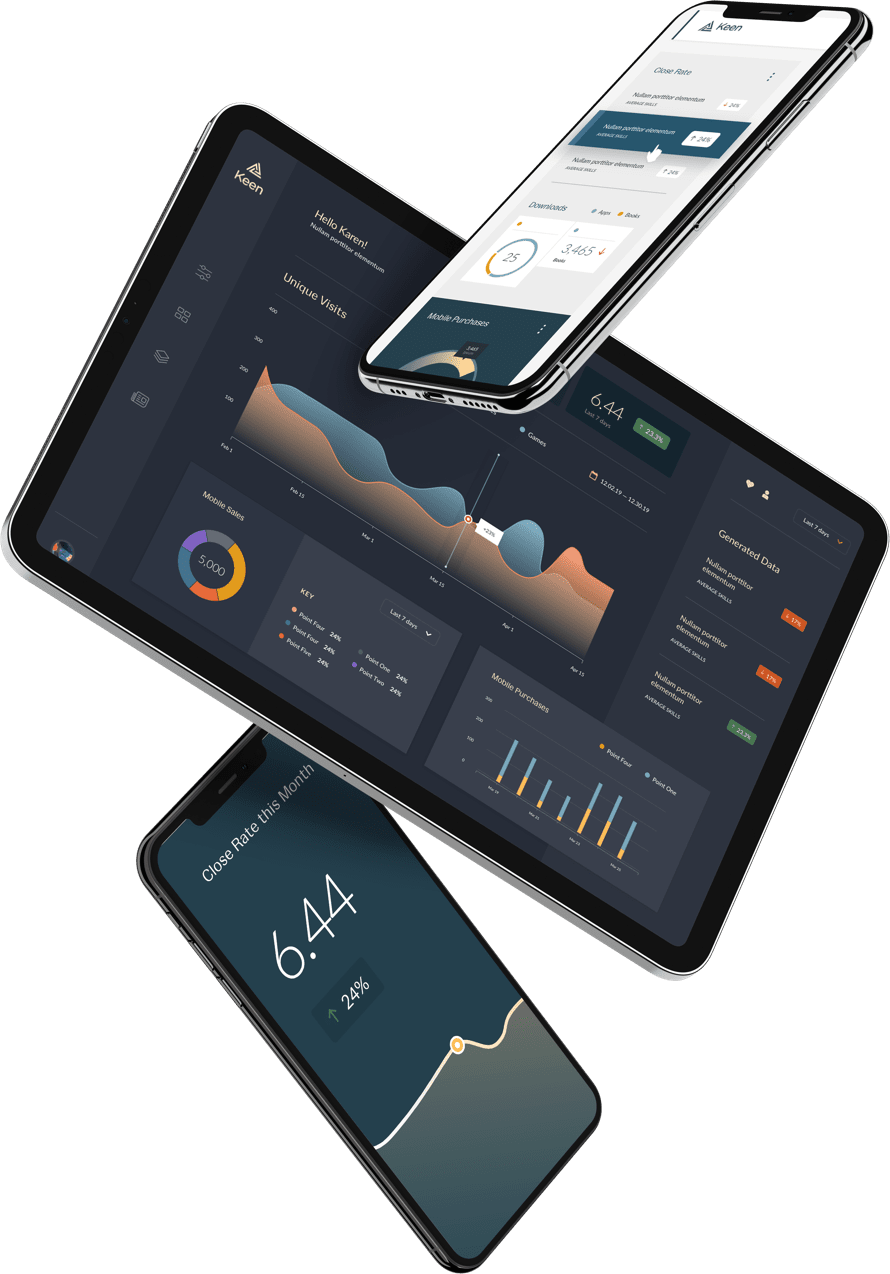People write a lot about the emotional rollercoaster of startups. Turns out, that roller coaster doesn’t slow down after year 1, 2, or 3. I know firsthand that the metaphor doesn’t go away after you hit 100 or 500 paying customers, after you’ve been backed by Sequoia Capital, or after you’ve captured millions of dollars in revenue. The roller coaster climbs higher, making the drops all the more terrifying. Slack’s CEO sums it up pretty precisely:
Now that we’re on this crazy success trajectory, the degree of stress and the degree of doubt and the degree of second-guessing hasn’t been reduced at all,” he said. “In many respects, it’s actually worse now because there’s more at stake. […] I think I wake up every day and look in the mirror and say, ‘We’ve almost certainly fucked this up completely.’ — Stewart Butterfield, CEO, Slack
One thing I’ve noticed is that it’s easy to write and to be transparent when things are going great. It’s harder when the roller coaster dips downward, when your stomach feels like it’s in freefall. Way back in January (2015), our team experienced one of those dips. Up until this point, for 24 straight months, Keen IO’s business had grown 5–15% — every month! We were embarrassingly confident, and we felt unstoppable. It was coming off of this incredible rise that reality hit and we got to experience a little more of that roller coaster everyone was talking about.
I wrote the following company-wide memo during that time, when we got to learn what it was like to fall a little bit.
On Tue, Feb 24, 2015 at 5:55 PM, Michelle Wetzler wrote:
Hey everybody — I hope you don’t mind me sharing a relatively raw piece of writing. It started out as a sort-of blog post, but then I realized it’s really a letter to you all. Feeling a bit brave right now and clicking send. Hope it’s helpful.
-Michelle
Permission to Fail
It’s been a rough few weeks for Keen. In January, a big customer churned. We didn’t close any new big deals. So, we not only missed our revenue target, our MRR and incoming event volume actually went down for the first time ever. We discovered the dedicated topology we sold to one customer actually made their user experience worse, and refunded their money. A couple of teams have been struggling to find their footing; emotions have been running high. In last week’s outage, we dropped data for the first time in over 12 months. The instability has led not only leading to worried emails from our customers, but many sleepless and stressful days & nights for our teammates. And perhaps worst of all, several folks have admitted that they’d have a hard time recommending a friend to join Keen right now, because it’s just too stressful at this time.
During a time like this, it’d be easy to say: let’s double-down, work through the weekend, push through the issues, get ‘er done, rally!
Instead, let’s give ourselves permission to fail.
Giving myself permission to fail has been one of the most liberating, stress-relieving, and rewarding things I’ve done in last year.
The only way we can become a truly great company is if we open ourselves to the possibility that we might not be.
And you know what? It’s okay if we’re not. If Keen busts, we’ll all find new grand adventures. Some us could start a new company together, or get boring jobs at big co’s, or sail around the world, who knows, the world is full of lots of amazing opportunities.
This whole thing is an experiment and has been an experiment since the beginning. We wanted to work together, to solve problems, to create something people loved, to forge our own culture. We wanted to challenge ourselves. We wanted to be happy & fulfilled in our work. We wanted to do it our own way. For the most part, we’ve done that, and done it better than we ever imagined. Who knows if it will continue to work. I have a lot of evidence and strong intuition that it will, but I can’t predict the future. It’s still an experiment.
To give yourself permission to fail, it helps to imagine the path where the absolute worst happens.
What would happen if you walked away from your job right now and never looked back? What would happen if you did your job the best you could, and you still failed completely? What would happen if the company went under?
I can imagine all sorts of things I would do if Keen went poof. At first, I felt guilty for thinking this way. Then I felt incredibly liberated. Try it. Your work becomes 10X easier when you realize you don’t have to do it. You don’t have to do this. You are incredibly talented and there are so many opportunities out there.
To give yourself permission to fail, you have to untangle your ego from your work. Having your ego tied up in your work is a handicap. You can’t think strategically or take risks when you and your personal well-being are on the line.
I used to (and sometimes still do) romanticize Keen a little too much, thinking of it as my child, a part of myself. I’ve been working hard to untangle this. Not because I plan to care any less about Keen, but because I don’t want my ego & personal fears to get in its way. Keen and Michelle are two different things, or at the very least they are less overlapping than they used to be. If Keen is struggling, it need not mean Michelle is struggling. If Keen is taking a risk, it need not mean my happiness is on the line. Even if I fail completely at my job, I will be just fine. It just means I tried something too difficult for me, or my assumptions were wrong. That’s ok too.
I’ll admit it’s a little bit awkward for me to write all of this out. It’s possible that I care about Keen more than anyone and here I am saying it’s OK if it busts. Don’t get me wrong, it’s a little bit terrifying to think about. But it’s also a huge relief, a weight off my shoulders. It would be okay. When failure is no longer scary, my work is no longer driven by fear. Paradoxically, thinking about Keen’s failure makes me more confident in our success. Not only does it become less scary, it seems incredibly unlikely.
After 24+ solid months of growth, it would be silly to conclude it might all be falling apart because we had a stagnant month, or even a few bad months. Part of the reason the platform has struggled lately is that we continue to grow like crazy. Just today we hit a new record for event volume. In the past months, two companies have approached us about deals that would double our business. Many people at Keen will tell you “it’s the best job I’ve ever had.”
Still, I appreciate this time to reflect when our confidence is shaken a bit. To be honest, we were probably overdue for it.
Building Keen is the most rewarding thing I have ever done, and I love it dearly. But I’m learning to accept that fulfillment isn’t about achievement. It’s about accepting what happens. It’s about listening to what you want to become. To do that, you have to be comfortable with many possible paths, many possible outcomes. We probably won’t fail, but if we do, I’ll be okay. We’ll be just fine.
Love,
Michelle
So what happened? Did any team members walk away? And why did I just publish this on our blog??
This lesson was valuable to me personally, and I thought it might be helpful to other people. We learn some of our most important lessons from our struggles, even though they are some of the harder things to share about.
We all know that the Silicon Valley is a strange place, a bizarre land of meteoric rises and epic failures, of techno-heroes and greedy villains. But…. actually, mostly, it’s a bunch of well-meaning nerds, generally-ordinary people trying to build stuff while facing a variety of challenges along the way. Those stories are worth sharing, too.
Finally, I’ll share how my team reacted, which will explain my third reason for sharing: it was a message that we needed at the time, and perhaps that message can help some folks out there who may need it too.
Despite my suggestion to consider their options, no one quit. Almost everyone in the company responded, either in a reply-all or a private message to me:
They said:
- “THANK YOU”.
- “This was so uplifting”.
- “Bad FUCKING ass”
- “This is what I signed up for”
- “I just teared up reading this”
- “I have something to share too…”
- “I’m grateful for the opportunity to work with you”
- “I wish we talked more about our fears and failures”
- “Your thoughts about ego remind me of this Alan Watts quote”
- “Reading this made me feel more motivated to work to get us back on track”
- “While I know everything will be fine even if Keen fails, I really really like it here and I don’t want it to end :)”
- “This is going to be an incredible year”
And some didn’t say anything. They simply walked over and gave me a big hug.



